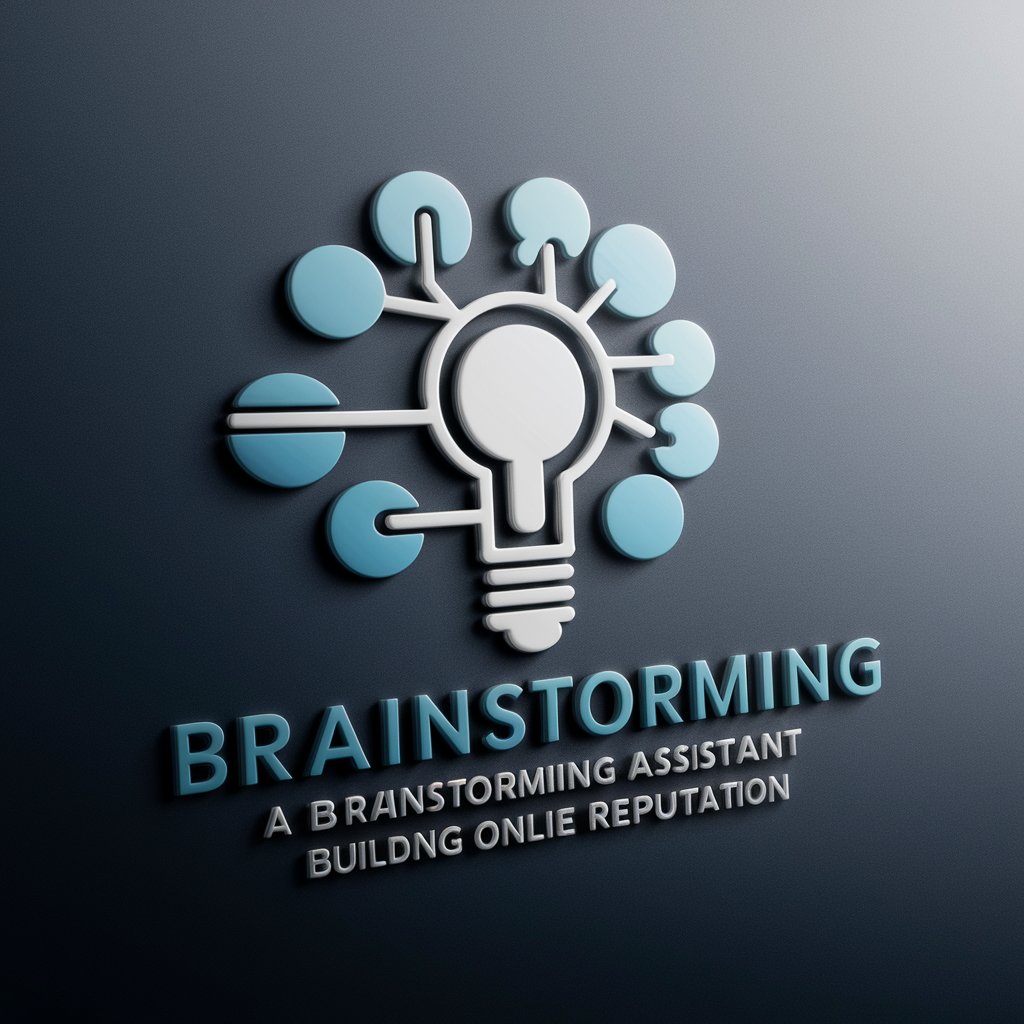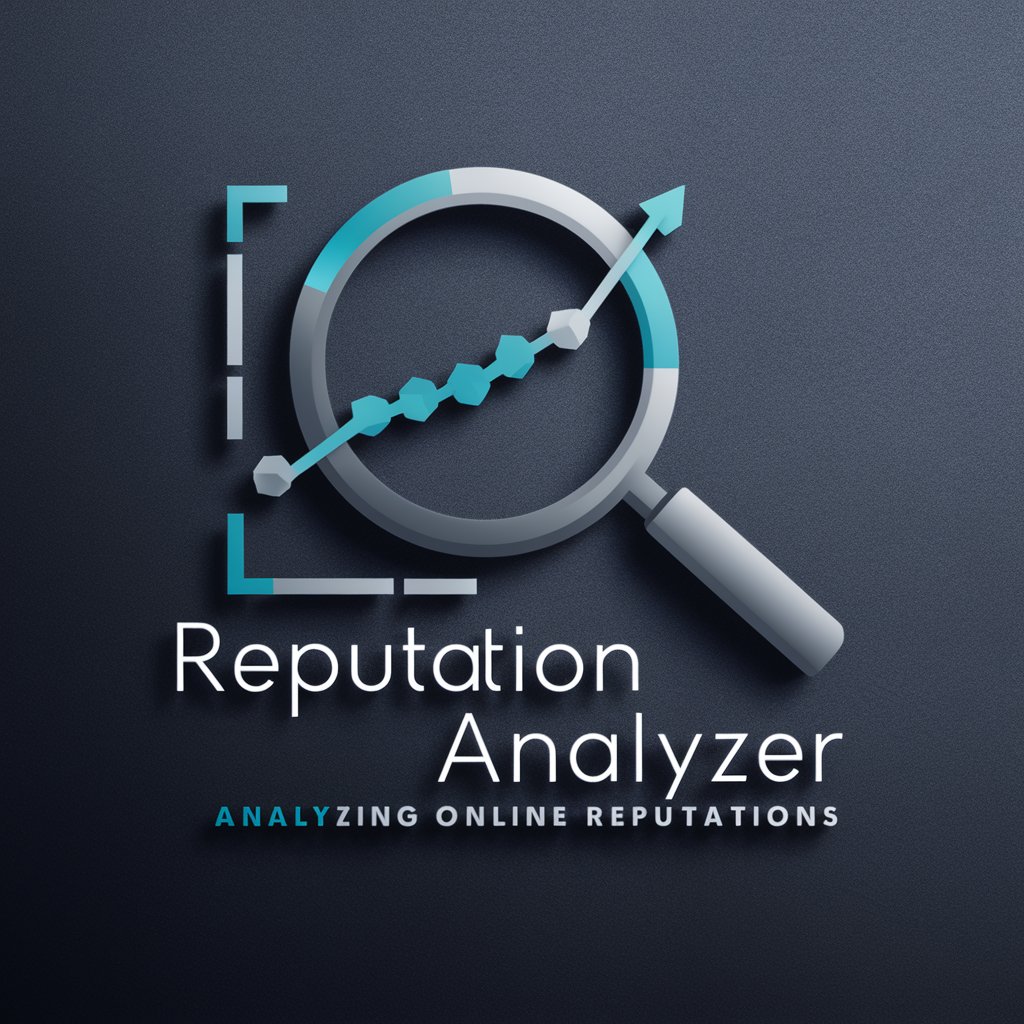
Reputation management - Reputation Management Tool

Elevate your brand with AI-powered reputation management.
How can I improve my product descriptions?
What's a good headline for a fashion blog?
Get Embed Code
Understanding Reputation Management
Reputation management refers to the practice of monitoring, influencing, and controlling an individual's or organization's reputation. Originally a public relations term, the growth of the internet and social media, along with reputation management companies, have made search results a core part of an individual's or group's reputation. Reputation management now exists under two spheres: online and offline reputation management. Online reputation management focuses on managing product and service search website results, whereas offline reputation management refers to the process of managing public perception of a person or organization outside the digital sphere, through various forms of media. An example scenario illustrating its application could be a company facing negative reviews online. By implementing reputation management strategies, such as engaging positively with customers, addressing their concerns, and encouraging satisfied customers to share their experiences, the company can improve its online presence and customer perception. Powered by ChatGPT-4o。

Main Functions of Reputation Management
Online Reputation Monitoring
Example
Using software tools to regularly scan the internet for mentions of a brand, product, or individual.
Scenario
A business utilizes monitoring tools to stay informed about what customers are saying about their products on review sites, social media, and forums. This allows them to address negative feedback promptly and amplify positive experiences.
Reputation Repair and Crisis Management
Example
Developing and implementing strategies to mitigate negative press or social media buzz.
Scenario
After a negative event, such as a product recall, a company engages in reputation repair by issuing a public apology, taking clear steps to resolve the issue, and communicating openly with the public and stakeholders about the measures being taken to ensure such an event doesn’t recur.
SEO (Search Engine Optimization) for Reputation Management
Example
Improving the visibility of positive content in search engine results to outweigh the negative.
Scenario
An individual works to bury negative personal news articles by creating positive content that ranks higher in search engine results, thereby improving the individual's overall online reputation.
Content Creation and Management
Example
Producing and promoting positive and engaging content to shape public perception.
Scenario
A brand develops a comprehensive content strategy that includes regular blog posts, videos, and social media content to build a positive online presence and engage with their audience in a constructive manner.
Ideal Users of Reputation Management Services
Businesses and Brands
Companies of all sizes benefit from reputation management to protect, manage, and improve how they are seen online. This includes dealing with negative reviews, managing social media presence, and promoting a positive image to attract and retain customers.
Public Figures and Professionals
Individuals in the public eye, such as politicians, celebrities, and high-profile professionals, use reputation management to maintain and improve their public image, mitigate negative publicity, and highlight positive achievements and news.
Non-Profit Organizations
Non-profits use reputation management to maintain donor trust, attract new supporters, and effectively communicate their achievements and impact. A strong reputation is crucial for fundraising and fulfilling their mission.
Educational Institutions
Schools, colleges, and universities engage in reputation management to attract students, faculty, and funding. Positive reputation influences enrollment decisions and can impact the institution's standing in educational rankings.

How to Use Reputation Management
Initiate Your Journey
Navigate to yeschat.ai to start your free trial, offering instant access without the need for ChatGPT Plus or any login credentials.
Define Objectives
Identify your specific reputation management needs, such as monitoring online reviews, improving customer interactions, or enhancing your digital presence.
Customize Settings
Tailor the tool to meet your objectives by setting up alerts for brand mentions, configuring sentiment analysis, and choosing the sources to monitor.
Engage and Respond
Use the tool to actively engage with feedback, address negative reviews constructively, and highlight positive experiences to build a strong online reputation.
Analyze and Adapt
Regularly review analytics provided by the tool to understand the impact of your actions, identify trends, and make informed decisions to continually improve your reputation.
Try other advanced and practical GPTs
Brand reputation
Elevate Your Brand with AI Insight

BIXI Montréal
Navigate Montréal with AI-Powered Bike Sharing

Patton Strategic Advisor
Strategize with the wisdom of General Patton

Flipper Guide
AI-powered Flipper Zero Support

Podcast Prodigy
Elevate your podcast with AI-driven conversation starters.

Podcast
Empowering Your Podcast Journey with AI

Reputation Management Master
Elevate your online image with AI-powered reputation management.

Reputation Analyst GPT
Elevate Your Brand with AI-Powered Insights

Social Media Reputation Management AI
Elevate your social media game with AI-powered insights.

Reputation Recovery Coach
Revive Your Reputation with AI Insight

Reputation Recovery Coach
Revive Your Image with AI-Powered Support

In my absence I salute guardians of my reputation
Empowering personal growth with AI.

FAQs About Reputation Management
What is Reputation Management?
Reputation management involves monitoring and influencing how your brand is perceived online. It combines technology and strategies to ensure positive public perception, manage feedback, and mitigate negative content.
How does AI enhance Reputation Management?
AI enhances reputation management by offering advanced analytics, real-time monitoring, sentiment analysis, and automated responses to feedback. This allows for more efficient and effective management of a brand's online presence.
Can Reputation Management help with SEO?
Yes, actively managing your online reputation can improve SEO by generating positive content and reviews, which in turn can lead to higher search engine rankings and increased visibility.
Is Reputation Management suitable for small businesses?
Absolutely. Small businesses can greatly benefit from reputation management to build trust, improve customer satisfaction, and compete more effectively in their market.
How often should I monitor my online reputation?
Continuous monitoring is recommended. With the dynamics of online content and public opinion, regular check-ins help in promptly addressing issues and leveraging positive feedback.





